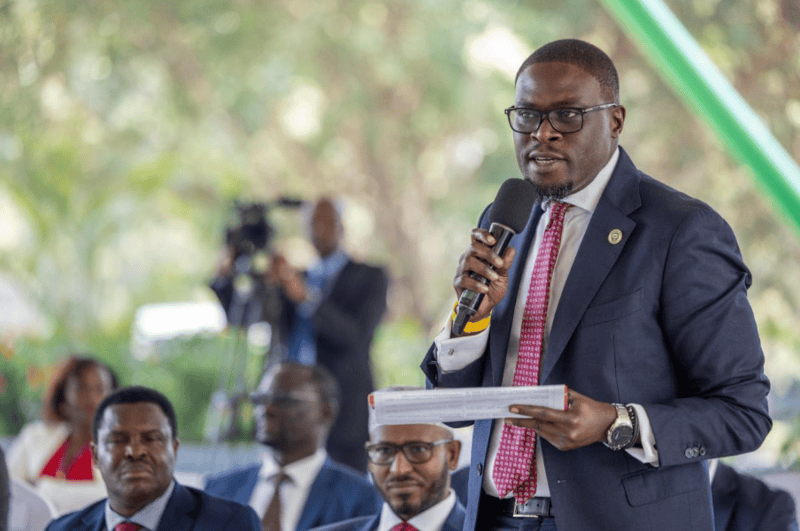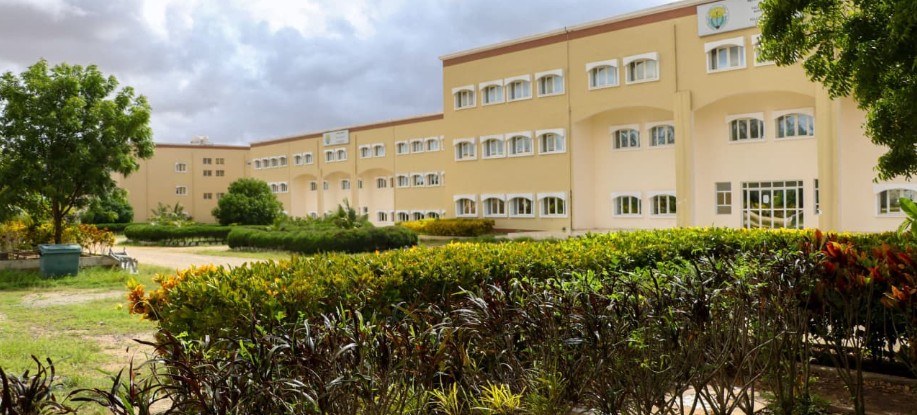Interpol operation against terror financing nabs 83, including two online recruiters in Kenya

To tackle this multifaceted threat, participating countries shared intelligence on significant targets at the pre-operation phase. This was supplemented by strategic cyber intelligence from Interpol and AFRIPOL, with key data from private-sector entities Binance, Moody's and Uppsala Security.
An International Criminal Police Organisation (Interpol) operation targeting terrorism financiers and perpetrators of illegal activities supporting the same across six African nations has led to 83 arrests and the identification of 160 persons of interest.
The operation dubbed 'Operation Catalyst' was carried out in Kenya, South Sudan, Angola, Cameroon, Namibia and Nigeria and jointly coordinated by Interpol and African Union Mechanism for Police Cooperation (AFRIPOL) between July and September this year.
More To Read
- INTERPOL operation nets thousands of protected animals, plants and timber
- 152 officers fail integrity tests as EACC flags widespread ethical breaches
- EACC intensifies war on corruption, recovers Sh3.4 billion in assets
- EACC report exposes billions lost to corruption in state agencies, counties
- Nairobi concludes EU maritime security week with calls for increased cooperation among partners
- KDF denies allegations of methamphetamine theft in massive 1,024kg seizure off Kenyan coast
"Of the 83 arrests, 21 were for terrorism-related crimes, 28 were for financial fraud and money laundering, 16 were linked to cyber-enabled scams and a further 18 were related to the illicit use of virtual assets," Interpol said on Wednesday.
In Kenya, a suspected money laundering operation using a virtual asset service provider was identified as having potential links to terrorism financing.
"The scheme, worth approximately $430,000 (Sh55.4 million), involved 12 people, two of whom have so far been arrested," said Interpol.
Still, in yet a separate case in Kenya, two individuals were arrested for the online recruitment of young people from East and North Africa into terrorist groups.
Interpol said the funds used for the recruitment and radicalisation were traced through a cryptocurrency trading platform back to individuals in Tanzania.
Over 15,000 persons of interest and entities across the participating countries were screened over the two-month period in efforts to identify and disrupt financial flows and schemes found to have connections to terrorism financing.
In the process, approximately $260 million (Sh33 billion) in both fiat and virtual currencies potentially linked to terrorism-related activities was uncovered, and approximately $600,000 (Sh77.4 million) was seized, with additional investigations underway to trace and recover further assets.
Interpol noted that in one transnational case, a massive cryptocurrency-based Ponzi scheme that claimed to be a legitimate online trading platform was uncovered.
The scheme, in at least 17 countries globally, including Cameroon, Kenya, and Nigeria, affected more than 100,000 victims, with an estimated loss to victims of $562 million (Sh72 billion).
Additionally, Operation Catalyst investigations found that several large-value wallets were potentially linked to terrorism financing activities.
"The case is still ongoing, with investigations currently in progress," the organisation said.
At the same time, a Red Notice was issued for an individual thought to be behind a sophisticated cryptocurrency scheme, which scammed victims of approximately $5 million (Sh645 million).
The scam redirected funds to multiple addresses and centralised exchange platforms to obscure the trail and convert the assets into fiat currency. Investigators believe the case exhibits several traits consistent with known terrorist financing methodologies.
In Nigeria, the operation led to the arrest of 11 suspected terrorists, including high-level members of several terrorist groups.
"By sharing intelligence, expertise and resources, we can more effectively identify and disrupt the financial flows that support terrorist activities to stay one step ahead of these threats and keep our communities safe," Interpol Secretary General Valdecy Urquiza said.
Interpol explained that tackling terrorist financing is particularly complex for law enforcement, as it often cuts across diverse criminal activities, including fraud, kidnapping for ransom, illicit trade, online scams, Ponzi schemes and the misuse of virtual assets, hence the need for united and coordinated responses.
These illegal activities, it added, can be linked to terrorism financing directly when terrorist groups receive funds from such schemes or indirectly, through money laundering or intermediary networks.
"This joint endeavour, dedicated to disrupting the financing of terrorism across the African continent, illustrates how coordinated action between Member States, facilitated by AFRIPOL and Interpol, can effectively address complex and evolving security threats," Ambassador Jalel Chelba, Interpol's Executive Director, said.
Top Stories Today














































